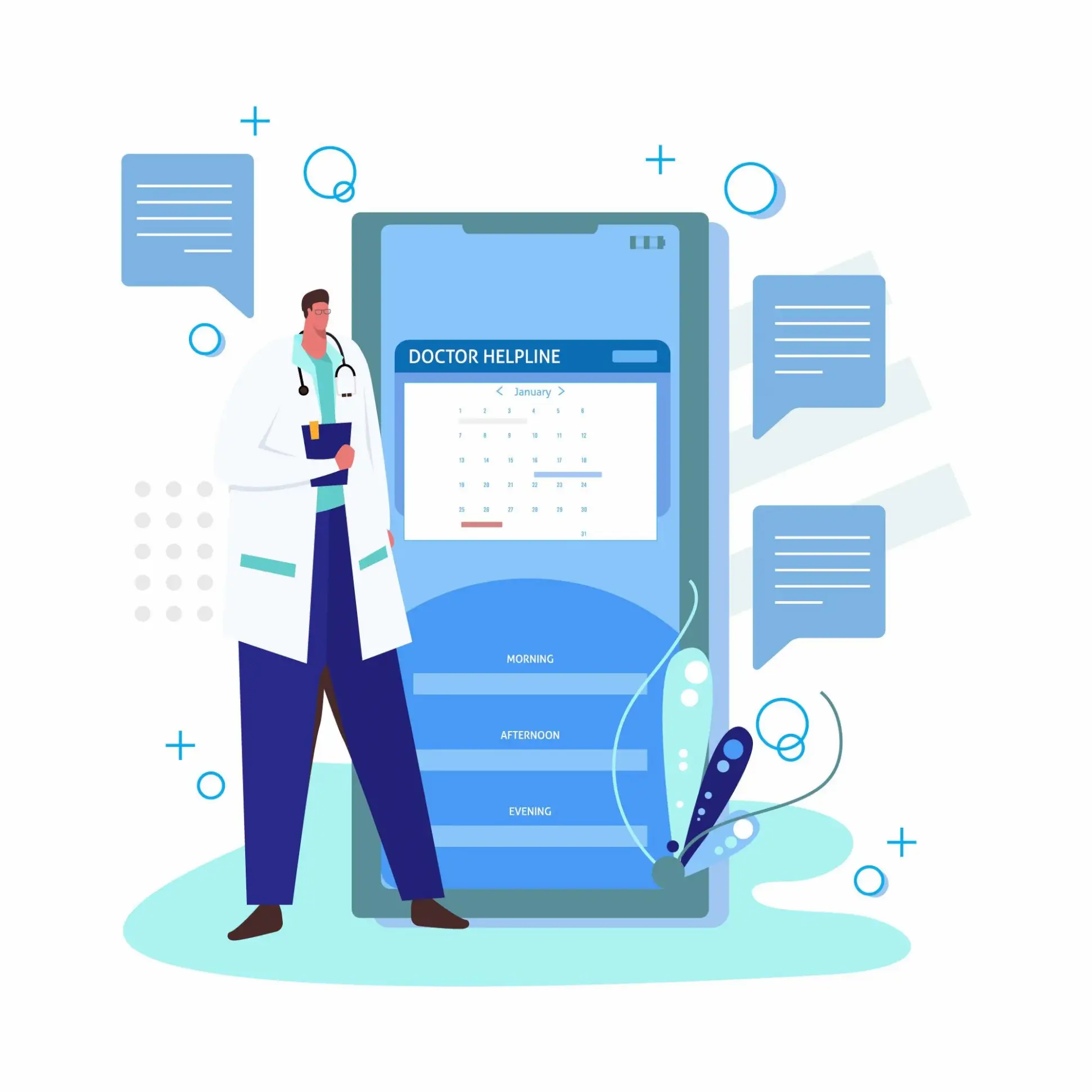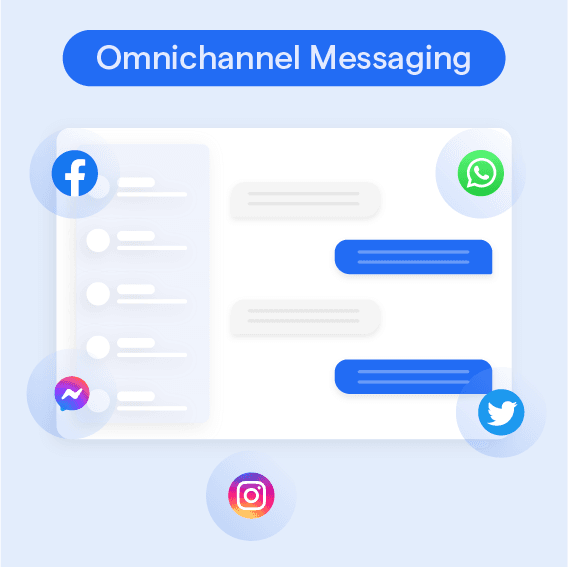Omnichannel Messaging
Omnichannel Messaging is the ultimate method for customer communications. It's all about engaging with your customers through their preferred channels, whether it's email, social media, SMS, or even carrier pigeons (okay, maybe not pigeons). The goal is to create a seamless and consistent experience across all touchpoints, ensuring your customers feel heard, understood, and valued.
Imagine you're at a party, and every conversation you have is disjointed and disconnected. Frustrating, right? That's how your customers feel when their interactions with your brand are inconsistent. Omnichannel messaging is the glue that holds these conversations together, providing a cohesive and delightful customer experience that keeps them coming back for more.
Omnichannel Messaging: An Overview

Target Audience for Omnichannel Messaging
The short answer? Everyone! Omnichannel messaging is designed to cater to the diverse communication preferences of your customers, from tech-savvy millennials to old-school baby boomers. By understanding your audience and their unique needs, you can craft tailored messaging strategies that resonate with each segment.
Key Components of Omnichannel Messaging
Omnichannel messaging is like a delicious layer cake, with each component adding its own unique flavor:
- Channels: These are the various platforms through which you communicate with your customers, such as email, SMS, social media, and live chat.
- Content: This is the actual message you're sending, whether it's a promotional offer, a helpful tip, or a friendly reminder.
- Context: This refers to the circumstances surrounding your message, such as the customer's location, behavior, or purchase history.
- Consistency: This is the secret ingredient that ties everything together, ensuring your messaging is cohesive and harmonious across all channels.
Timing and Frequency of Omnichannel Messaging
Timing is everything, especially when it comes to omnichannel messaging. You want to be the life of the party, not the annoying guest who won't stop talking. To strike the right balance, consider factors like customer preferences, time zones, and the nature of your message. And remember, quality trumps quantity – it's better to send fewer, more relevant messages than to bombard your customers with constant noise.
Channels and Platforms for Omnichannel Messaging
Omnichannel messaging is all about meeting your customers where they are, whether that's scrolling through Instagram, checking their email, or browsing your website. By leveraging a diverse mix of channels and platforms, you can ensure your message reaches the right people at the right time, in the right place.
Benefits of Implementing Omnichannel Messaging
Implementing omnichannel messaging is like upgrading your party playlist from "meh" to "mind-blowing." Some of the key benefits include:
- Improved customer satisfaction and loyalty
- Increased engagement and conversion rates
- Enhanced brand reputation and credibility
- More efficient use of marketing resources
How to Implement Omnichannel Messaging?

Developing an Omnichannel Messaging Strategy
Ready to get this party started? Here's a step-by-step guide to developing a killer omnichannel messaging strategy:
- Define your goals: What do you want to achieve with your messaging? More sales? Better customer retention? World domination? (Just kidding!)
- Identify your audience: Who are your customers, and what makes them tick? Use data and insights to create detailed buyer personas.
- Choose your channels: Based on your audience and goals, which channels are most likely to deliver results? Don't be afraid to think outside the box!
- Craft your content: Create compelling, relevant, and personalized messages that resonate with your audience and drive action.
- Test, measure, and refine: Continuously monitor and analyze your messaging performance, making tweaks and improvements as needed.
Choosing the Right Messaging Platforms and Tools
The right tools can make or break your Omnichannel Messaging efforts . Look for platforms that offer features like:
- Easy integration with your existing systems
- Support for multiple channels and devices
- Robust personalization and targeting capabilities
- Comprehensive analytics and reporting
Integrating Messaging Channels for Seamless Communication
Integration is the secret sauce that makes omnichannel messaging so powerful. By connecting your various channels and systems, you can ensure a smooth and consistent customer experience, no matter how or where they choose to engage with your brand.
Personalizing Messages Across Channels
Personalization is like the cherry on top of your omnichannel messaging sundae. By tailoring your messages to each customer's unique needs and preferences, you can create a truly memorable and meaningful experience that sets you apart from the competition.
Measuring the Effectiveness of Omnichannel Messaging
You can't manage what you don't measure, so it's crucial to track the performance of your Omnichannel Messaging efforts. Key metrics to monitor include:
- Engagement rates (e.g., opens, clicks, shares)
- Conversion rates (e.g., sign-ups, purchases, downloads)
- Customer satisfaction and feedback
- Return on investment (ROI)
Best Practices for Omnichannel Messaging

Ensuring Consistency Across Channels
Consistency is the name of the game when it comes to omnichannel messaging. Make sure your messaging is cohesive and on-brand across all channels, from your tone of voice and visual identity to your customer service policies and procedures.
Prioritizing Customer Preferences and Privacy
Respect your customers' communication preferences and privacy by giving them control over how, when, and where they receive your messages. This not only builds trust and loyalty but also ensures compliance with data protection regulations.
Optimizing Messaging for Mobile Devices
With more and more customers using mobile devices to access content and make purchases, it's crucial to optimize your messaging for smaller screens and touch interfaces. Think responsive design, concise copy, and thumb-friendly buttons.
Leveraging Automation and AI in Omnichannel Messaging
Automation and AI can help you streamline your messaging efforts, freeing up time and resources to focus on more strategic tasks. Use tools like chatbots, predictive analytics, and machine learning to deliver smarter, more efficient messaging experiences.
Continuously Evaluating and Improving Messaging Strategies
The world of omnichannel messaging is constantly evolving, so it's essential to stay agile and adaptable. Regularly evaluate your messaging strategies and make improvements based on customer feedback, industry trends, and performance data.
Challenges and Solutions in Omnichannel Messaging
Overcoming Channel Fragmentation
With so many channels and platforms to choose from, it's easy to get overwhelmed. Focus on the channels that are most relevant to your audience and goals, and don't be afraid to trim the fat if a channel isn't delivering results.
Managing Data and Privacy Concerns
Data privacy is a hot-button issue, so it's crucial to handle customer information with care. Develop clear and transparent privacy policies, and invest in robust security measures to protect your customers' data.
Addressing Technical Integration Issues
Integrating multiple messaging channels and systems can be complex, but it's essential for a seamless omnichannel experience. Work closely with your IT team or seek external expertise to ensure smooth and successful integration.
Balancing Personalization and Automation
Striking the right balance between personalization and automation can be tricky. Use data and insights to inform your messaging strategy, and remember that sometimes, a human touch can make all the difference.
Omnichannel Messaging in Different Industries

Retail and E-commerce
Omnichannel messaging can help retailers and e-commerce brands create seamless shopping experiences, drive sales, and build customer loyalty.
Banking and Financial Services
For banks and financial institutions, omnichannel messaging can enhance customer service, streamline operations, and improve compliance and security.
Healthcare and Telemedicine
In the healthcare sector, omnichannel messaging can facilitate patient-provider communication, improve health outcomes, and increase patient satisfaction.
Travel and Hospitality
Omnichannel messaging can help travel and hospitality brands deliver personalized experiences, boost bookings, and streamline customer service.
Frequently Asked Questions
What is Omnichannel messaging?
Omnichannel messaging refers to the seamless integration of multiple communication channels, providing a consistent and unified customer experience across all platforms.
Why is Omnichannel messaging important?
Omnichannel messaging improves customer satisfaction, increases engagement, and drives loyalty by offering a convenient and consistent experience across all channels.
Which channels are typically included in Omnichannel messaging?
Common channels include email, SMS, social media, live chat, chatbots, and voice calls, among others.
How can businesses implement Omnichannel messaging?
Businesses can adopt omnichannel messaging by integrating communication tools, centralizing customer data, and training staff to provide consistent support across channels.
Does Omnichannel messaging improve customer support efficiency?
Yes, omnichannel messaging streamlines support processes, reduces response times and enables agents to handle multiple interactions simultaneously, improving overall efficiency.


